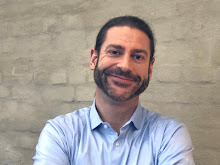Phone Booking of a Hotel Room
in a Chinese Metropolis
in the Year 2008
Guest Author: Thomas Hoefels
Thomas has over 25 years of experience in international tourism consulting. Yet, the incidence which surrounded his attempt of reserving a hotel room in a Chinese Metropolis did not fail to impress him deeply. Intercultural communication imposes certain hindrances -- but if you read to the bottom, you will see that all came to a good end.
(Ring, ring, ring……….)
Chinese words, presumably: hello?
It's Thomas speaking. I’m calling from Germany and would like to book a room at your hotel.
No book…
But this is a hotel?
Yes.
And I would like to book a room with you.
No bookshop, this is hotel.
I would like to have a room.
Just a moment…
(Connecting to a colleague……)
Chinese words, presumably: hello?
I would like to book a room.
Your room number?
I don’t have a room number, I would like to visit you and need a room for one night.
A, B or C?
Pardon?
Block A, B or C?
I don’t know your blocks. I need a single room at a reasonable rate.
Block A is 315 including breakfast.
Very good. So I come March 30 and leave March 31.
No 30, it's 315.
I know this now, and I will pay 315. Please note that I arrive March 30 and leave March 31.
No! 315!
Can you give me your email address or your website address? I will write my request to you.
Wessigh? Amill?
No, your homepage or email.
Moment…
(Connecting to a colleague……)
Chinese words, presumably: hello?
I would like to come to your hotel…
Come!
Can you confirm this in writing? Thomas from Germany, arrival at March 30 for one night.
Come! I write.
Can you please give me your fax number?
No fax, this is phone.
I know, but I would like to know your fax number.
Yes! (Silence……….)
Please, could you give me your fax number?
Moment…
(Connecting to a colleague……)
Chinese words, presumably: hello?
Can you give me your fax number?
Just a moment….
Sil, sil eigh, sea…..
Pardon?
Sil, sil, eigh, sea….
I see, 0086, this is China. I know this, and I also know your city code. But I need your personal fax number. I would like to write a letter to you.
Personal? Letter?
Yes. Please, your fax number!
Eigh, lee, sea, figh, sea, yan…….
Thank you. I come!
(c) Thomas Hoefels 2008
Thomas Hoefels finally decided to arrive at the hotel as a walk-in without any bookings and documents. He was cordially welcomed by friendly people and enjoyed a splendid stay at the hotel.
And upon his check-out, he paid exactly 315, as this was agreed by phone with Thomas from Germany for a single room in block A from March 30 to 31.








